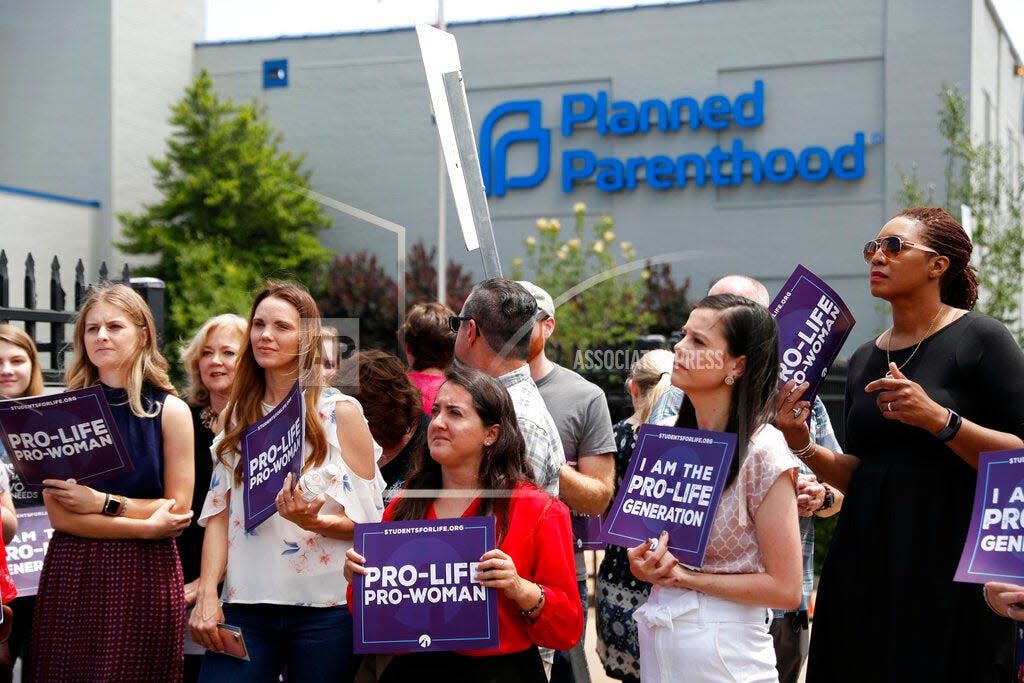Lawsuits challenging abortion ballot initiatives’ title language scheduled for Sept. 11

- Oops!Something went wrong.Please try again later.
The next saga in the fight to place initiatives petitions aimed at legalizing abortion on the 2024 ballot will commence on Sept. 11.
Cole County Judge Jon Beetem selected this date in a hearing held Thursday and promised a speedy decision following the hearing.
He asked Assistant Attorney General Jason Lewis and ACLU of Missouri attorney Tony Rothert to submit their case briefs by Sept. 1 and response briefs by Sept. 7.
The court has a litigation timeline of 180 days for this case. Both attorneys and Beetem fully expect his decision to be appealed.
“We want to forecast and make sure that, not only your honor is not put in an unnecessarily tight position to issue a judgment, but also being as respectful as possible for any likely inevitable Court of Appeals rulings later on,” Lewis said to Beetem in the hearing.
This is the second filing of a lawsuit that argues the ballot summary language prepared by Secretary of State Jay Ashcroft is misleading. Last week, Beetem dismissed the same lawsuit, as it was filed before Ashcroft had officially certified the measure.
Part of Ashcroft’s ballot language indicates that supporting the measure would “allow for dangerous, unregulated, and unrestricted abortions, from conception to live birth, without requiring a medical license or potentially being subject to medical malpractice.” The ACLU argues that this unfair summary will sway Missourians to vote against the ballot measure.
In contrast, the ACLU’s ballot summary asks voters to “establish the right to reproductive freedom that includes the right to make decisions about reproductive health care, including prenatal care, childbirth, postpartum care, birth control, abortion care, miscarriage care, and respectful birthing conditions.”
This latest challenge comes just weeks after the Missouri Supreme Court issued a judgment ordering Attorney General Andrew Bailey to approve a fiscal note summary from Auditor Scott Fitzpatrick.
More: Missouri Supreme Court orders AG to stop delaying abortion-rights amendment
Bailey’s legal challenge to Fitzpatrick’s estimates of costs to the state if the measure was passed already delayed the collection of signatures by more than 100 days. This latest lawsuit guarantees that certification of the official ballot summary language will also stretch on for months.
However, both Beetem and Lewis asserted that signatures could be collected while the legal proceedings were pending. Lewis cites Missouri Supreme Court case Boeving v. Kander from 2016 as evidence that signatures count even if a ballot summary statement is changed.
“It's not going to affect the signature gathering process,” Lewis said. “So while time is of the essence in some degree, because of the 180 day clock, this is not the kind of case where anyone is up against the gun, or the proponent is prevented from doing anything right now.”
Rothert was unsure about this idea, as there were 11 versions of the ballot initiative filed, and the ballot summary language for six of those are currently being contested in court.
“As a pragmatic point, given the summary statement language, and not knowing what it will eventually be, proponents are in a position of not knowing which petition to collect signatures on without some guidance as to what it's going to be,” Rothert said. “Delaying too long, certainly, if this case took 180 days to resolve, that would kill the initiative.”
Over 171,000 signatures must be collected by early May for the measure to be included on the 2024 ballot. That figure is calculated based on guidelines stating that the number of signatures must equal 8% of the vote for governor in six out of the eight congressional districts in Missouri.
This article originally appeared on Springfield News-Leader: Abortion ballot initiative summary hearing scheduled Sept 11

